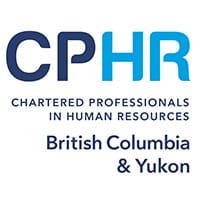The right to privacy is something that Canadians take very seriously – it is a fundamental right. This includes privacy in the workplace. We have strict laws to protect both employers and employees regarding privacy, but some employers make mistakes or poor judgements that lead to a claim they violated someone’s privacy and the law. Privacy laws are developing in Canada in recent years, most recently with the Bill C-27 on the Consumer Privacy Protection Act.
Collecting information without notifying workers
Employers can be within their rights to monitor use and access emails, chats and files on company-provided equipment for legitimate business purposes. If an employer wishes to collect data this way, they should disclose this to employees, often through a Terms of Use policy that they will have workers acknowledge and sign. If they do not, employers could face legal action. Further, actions like keystroke logging or continuous, routine monitoring of behaviours can be unreasonable and violate employee privacy.
In 2022, the Ontario government implemented a requirement for all employers with more than 25 employees to have a written policy on electronic monitoring of employees in place. This requirement does not yet apply in BC, but it may be good practice to implement a similar policy.
Failing to safeguard personal information
Employers may collect, use, and disclose personal information about employees for several reasons. For example, this includes employees’ medical information when receiving requests to accommodate a disability, incident reports filed by employees to investigate bullying and harassment claims, etc. When employers do so, they should only collect, use, and disclose what is necessary, and keep the data safe, whether they restrict access with a password to a computer file or a key to a cabinet. Employers should also check how long certain employee records should be retained to comply with governmental regulations, which may differ across provinces. Once a record retention period passes, employers should safely destroy these records.
As employers transition into or maintain remote and work from home environments, employers should consider their enhancing existing infrastructure security with things like a Virtual Private Network (VPN).
Conducting inappropriate video surveillance
Cameras are everywhere these days, whether they are in someone’s car, phone or doorbell. And in general, employees do not have an expectation of privacy in public or shared places in a workspace.
However, employers can violate workers’ rights by recording people in places like restrooms or locker rooms. It can also be unlawful to record employees without notification or permission, and courts may not look favourably on employers who surveil employees without cause or good faith. In brief, employers should have a legitimate purpose before conducting any sort of video surveillance, and notify their employees in advance so that a lack of consent does not become an issue.
Asking certain questions during interviews
Employers may want to get to know job candidates better by asking questions during an interview. However, some questions can be intrusive, and potentially unlawful, breaching the British Columbia Human Rights Code. Employers can violate someone’s privacy by asking things like:
- Do you plan to start a family?
- Are you dating anyone?
- How much do you weigh?
- How old are you?
- How often do you go out at night?
These questions are typically irrelevant in determining a person’s fitness for a job and could even be grounds for a discrimination claim. There are exceptions however, if the questions being asked are for a bona fide and reasonable job requirement. Before an employer asks a candidate sensitive questions in an interview, think about the following: is the requirement or factor that you are asking the potential candidate about: 1) adopted for a purpose or a goal that is connected to the job that is being performed, 2) adopted in good faith, with the belief that the employer needs this requirement or factor to fulfill the employer’s purpose or goal, and 3) is it necessary to have this requirement or factor to accomplish the employer’s purpose or goal? These questions form the Meiorin test for discrimination, which arose out of a leading Supreme Court of Canada decision in 1999.
Violations of privacy are intrusive and upsetting. Employers and employees alike would be wise to familiarize themselves with the privacy protections that exist to avoid conflicts and legal battles.


